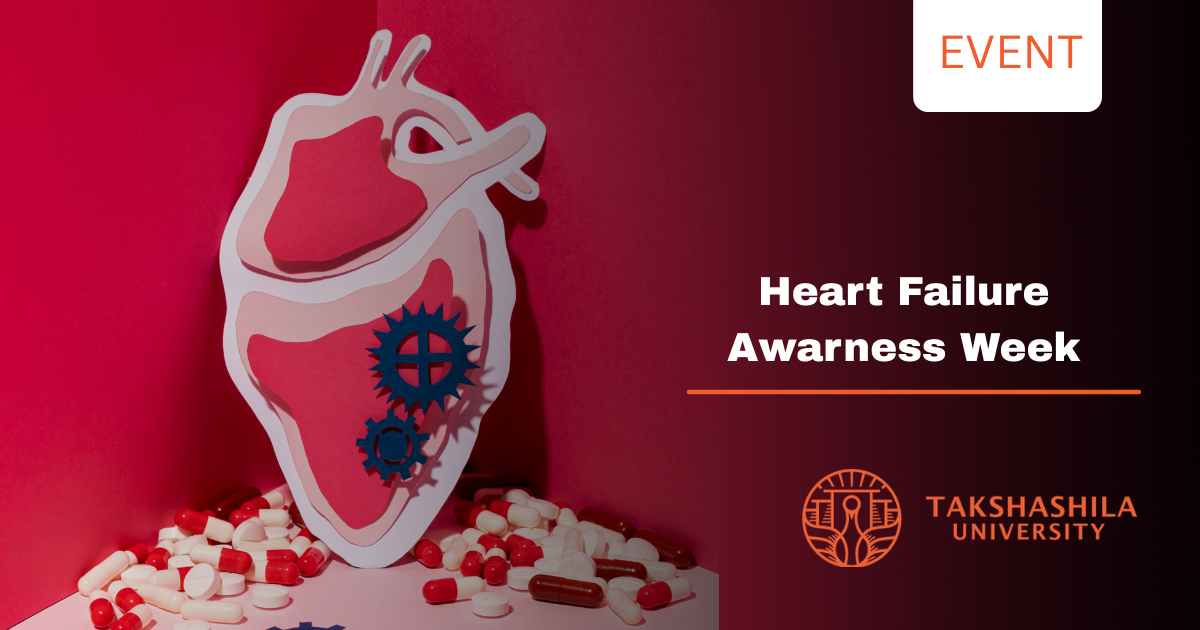Nursing is a wonderful and honorable profession. The Bachelor of Science in Nursing (BSc Nursing) is a versatile degree that trains students with the knowledge and skills necessary to become registered nurses in a high-quality healthcare sector. This degree provides people with a service. We will discuss the opportunities for studying abroad, available specialisations, career options, programme benefits, salary expectations, and common questions related to the course.
Nursing is committed to caring for and supporting people, families, and communities to maintain health and quality of life. The growing sophistication of the healthcare sector and increasing demand for skilled nursing professionals are vital factors today.
You’ll find detailed information about this course, eligibility criteria, and admission process. It provides a complete overview of the BSc Nursing course. It sure helps for their educational journey.
Why to Study BSc Nursing?
There are multiple reasons to choose a BSc Nursing degree:
- Growing Demand: The healthcare sector is developing globally, with an increasing need for qualified nursing professionals. A BSc Nursing degree gives students the necessary skills to meet the requirements of this healthcare profession.
- Career Opportunities: The nursing domain has various career options, including clinical practice for junior level, community health, nursing types, and healthcare management.
- Impactful Work: Nursing is a profession that directly impacts patient’s lives, providing an opportunity to help needy people in the community and improve health conditions.
- Financial Stability: Nursing offers decent salaries and benefits, making it a good career choice for many.
- Specialisation Options: BSc Nursing graduates can pursue various specialisations, allowing them to focus on areas that match their interests and career goals.
Course Details
The Bachelor of Science in Nursing (BSc Nursing) is a complete UG degree that prepares students for nursing and healthcare careers. This course typically lasts three years, including theoretical instruction, practical training, and clinical placements.
Below are the detailed components of the BSc Nursing programme.
Curriculum Overview
The BSc Nursing course provides a solid foundation in nursing fundamentals, patient care, and healthcare systems. Key subjects include:
- Fundamentals of Nursing: This initial course covers the basic concepts and skills required in nursing practice, including patient care techniques and communication skills.
- Pharmacology: Focuses on studying drugs and their effects on the human body, laying the groundwork for safe medication administration.
| Subject | Description |
| Anatomy and Physiology | The structure and function of the human body |
| Microbiology | The study of microorganisms and their impact on health |
| Pharmacology | The study of drugs and their effects on the body |
| Nursing Theory | The principles and concepts underlying nursing practice |
| Nursing Practice | Clinical skills and techniques used in patient care |
| Community Health Nursing | The application of nursing principles in community settings |
| Mental Health Nursing | The care of individuals with mental health conditions |
Eligibility Criteria
To be eligible for the BSc Nursing programme, candidates must meet specific criteria, which may differ based on the university’s regulations. Generally, the eligibility requirements include:
Educational Qualifications
Candidates should have completed 10+2 (or its equivalent) from a recognised board, with a focus on science subjects, mainly Biology, Chemistry, and Physics. A minimum percentage, often around 50-60%, is usually required.
Age Limit
Applicants should generally be between 17 and 35 at admission, though this can vary by institution.
Entrance Examination
Some universities may require candidates to pass an entrance examination that estimates their knowledge and aptitude for nursing, while others may consider only academic qualifications.
Medical Fitness
A medical certificate may be required to confirm the candidate’s fitness to undertake nursing duties. This ensures that students are physically and mentally prepared to be strong in the profession.
Admission Process
The admission process for the BSc Nursing programme typically involves several key steps. Here’s an overview of the procedure:
- Application Submission:
Interested candidates must submit an online application form through the university’s official website, providing relevant personal information and educational details.
- Entrance Exam Registration:
If the institution conducts an entrance examination, candidates must register for it following specific guidelines provided by the university.
- Entrance Examination:
Candidates sit for the entrance examination on the scheduled date. This exam may consist of MCQ or objective-type questions evaluating fundamental concepts related to nursing.
- Merit List Publication:
After the entrance examination and interviews, universities will publish a merit list based on academic performance and examination results.
- Counseling and Admission Confirmation:
Candidates who qualify based on the merit list/ scores will undergo counseling, during which they can choose their preferred course and college. Admission is confirmed after the necessary documentation and fee payment.
BSc Nursing Abroad
Studying a BSc in nursing abroad offers a wide range of advantages. Many universities worldwide provide excellent nursing education, advanced training facilities, and direction to various healthcare practices.
Some key benefits of pursuing BSc Nursing abroad include:
- Global Opportunities: Studying in another country prepares students for a global healthcare environment, opening doors to international job opportunities.
- Cultural Exposure: Studying abroad develops the student’s ability to adapt to different cultures and healthcare procedures, improving their character and understanding of global healthcare problems.
- Quality Education: Many international institutions provide high-quality nursing education, advanced technologies, and proper patient-like kid, adult and elder handling methods.
- Networking: Students have the opportunity to build a global professional network, connecting with new nursing students and professionals from around the world.
- Enhancement of Language Skills: Studying in a different country often involves communication in a second language, which can improve reading, fluency in language, and communication skills, which are valuable assets in the nursing profession.
Specialisations in BSc Nursing
BSc Nursing students have multiple options to specialise in various fields, qualifying them to be best in their knowledge and skills in specific areas of healthcare. Some common specialisations include:
- Pediatric Nursing: Focuses on the health care of infants, children, and adolescents, providing nursing care that considers growth and development stages.
- Geriatric Nursing: This stream deals with care for aging factors, working on the complexities of health issues related to older adults like bone-related pains.
- Mental Health Nursing: Specialises in caring for patients with mental health disorders, focusing on psychiatric sessions, counselling treatment, and rehabilitation.
- Critical Care Nursing: Properly caring for critically ill patients in an emergency and monitoring their care settings requires advanced check and intervention skills.
- Nursing Education: Prepares students for roles in the teaching profession for junior level in nursing schools, reliable for training the next generation of the nursing profession.
Career Options After BSc Nursing
The BSc Nursing degree opens a wide range of career opportunities. Some popular career paths include:
- Registered Nurse: Get a chance to be appointed as a direct in-patient care in various healthcare divisions, including hospitals, clinics, and nursing homes.
- Nurse Educator: Teaching nursing students in academic settings, developing their clinical skills and knowledge.
- Clinical Nurse Specialist: Strong expert nursing care in specific clinical areas and often involved in healthcare and instruction initiatives.
- Nurse Administrator: Managing nursing services in healthcare facilities, operations, budgets, and staff.
- Public Health Nurse: Nurturing community health through disease prevention and health awareness programs by initiatives.
- Nursing Researcher: Conducting research to improve nursing practices and healthcare areas, often associated with Master’s and analysis associations.
Benefits of Studying BSc Nursing
Pursuing a BSc Nursing degree offers major benefits, including:
- Secure Job Options: With a BSc Nursing degree, students in nursing have stable and secure jobs compared to other domains. That gives them a better job platform.
- Master’s Education: Graduates can pursue advanced degrees, such as Master’s in Nursing or specialisation programmes, that boost their career advancement and specialised department nurse
- Lifelong Knowledge: A qualified nursing professional with skilled experience in identifying health problems. To achieve this, they should upskill a lot.
Salary Range for BSc Nursing
The salary range for BSc Nursing graduates can vary based on several factors, including skills, experience, location, and the type of healthcare setting.
| Job Role | Salary Range (per annum) |
| Registered Nurse | ₹3 LPA to ₹5 LPA |
| Nurse Educator | ₹4 LPA to ₹8 LPA |
| Clinical Nurse Specialist | ₹5 LPA to ₹12 LPA |
| Nursing Administrator | ₹6 LPA to ₹15 LPA |
| Public Health Nurse | ₹4 LPA to ₹10 LPA |
| Nursing Researcher | ₹5 LPA to ₹12 LPA |
| Home Health Nurse | ₹3 LPA to ₹6 LPA |
| Emergency Room Nurse | ₹4 LPA to ₹9 LPA |
| Critical Care Nurse | ₹5 LPA to ₹10 LPA |
Nurturing the Future of Healthcare with Takshashila University
At Takshashila University, Our BSc Nursing program aims to shape future healthcare leaders. By integrating with top institutions globally, such as the University of Cambridge and FPT Education Global, we offer a world-class curriculum that integrates advanced learning specialisation in nursing. Our students learn essential nursing skills such as administering medications, taking vital signs, helping in surgeries, and providing patient care.
We take pride in nurturing an environment where innovation meets care. From the initial phase of clinical training to working with health innovation clubs, our students receive clear knowledge about advanced departments, write the case sheet, which includes patients’ BP checkups, can handle basic health-related issues, and are skilled professionals.
Conclusion
This blog summarises the roadmap for pursuing a BSc in Nursing, covering everything from courses to salary ranges. Nursing is not just about healthcare; it’s about creating healthy impacts in people’s lives.
Takshashila University stands committed to nurturing the next generation of professionals. Through a curriculum, advanced learning, and global partnerships. This degree is a great choice for those who want to make a positive impact in healthcare. Whether you’re interested in advanced nursing roles or helping in community health. It’s important to note that nursing can be physically and emotionally challenging, but the values and opportunities it offers make it. A BSc Nursing degree is a strong foundation for a fulfilling career
Start your journey with us and shape the future of healthcare today!
FAQ – BSc Nursing
1. What does a BSc Nursing do?
BSc Nursing graduates work as registered nurses. They handle patient care, administer medications, write the case sheet and help the doctors in various medical procedures. They can work in hospitals, clinics, nursing homes, and other healthcare settings.
2.Is BSc Nursing need NEET?
Yes, most universities in India require NEET (National Eligibility cum Entrance Test) for admission to BSc Nursing programs. NEET is a common entrance exam for medical and dental courses, including nursing.
3.Is BSc Nursing a good job?
Yes, BSc Nursing is a good job. Nurses are in high demand, especially within India. It’s a stable and secure career with opportunities for growth and specialisation. Job satisfaction is high due to the positive impact on patients lives.
4. Is BSc Nursing better than MBBS?
BSc Nursing and MBBS serve different roles in healthcare. BSc Nursing focuses on patient care and support, while MBBS leads to becoming a doctor with diagnostic and treatment responsibilities.
5. Can I pursue BSc Nursing if I am not from a science background?
Most nursing programmes require a science background at the higher secondary level, particularly in subjects like Biology, Chemistry, and Physics.






